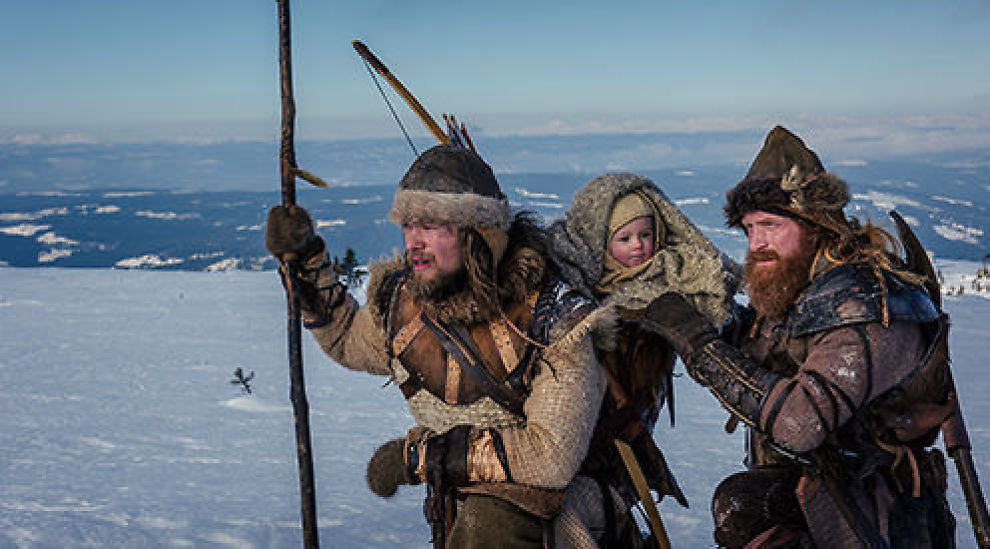Ever heard of Norwegian Civil Wars? Don’t worry if you didn’t. Waged in XII-XIII c. between, among others, the rich Baglers and the poor Birkebeins, it’s old news, really.
One particular episode, however, survives in people’s active memory to this day. In the winter of 1205-06, the Birkebeins’ less-than-two-year old pretender to the throne, Haakon Haakonson (born on the Bagler-controlled territory), was taken by two skiers to safety, through a roller coaster landscape, from Sarpsborg to Trondheim (Norway’s capital at the time). This perilous journey has been commemorated by Knud Bergslien’s 1869 painting, known to every Norwegian since school, and by the annual Birkebeiner ski race from Rena to Lillehammer, in operation since 1932. It has also become the subject of a major motion picture, released in Norway earlier this month and already sold to sixty other countries.
Haakon Haakonson lived to become King Haakon IV, rule for 46 years and unite Norway. Can the story of his dramatic rescue unite modern-day audiences, too?
In Norway, the chances are high. With a 12 certificate, the film’s distributors hope to sell from 400,000 to half a million tickets – roughly a tenth of the country’s population. The results of the opening weekend are encouraging: over 70,000 viewers came to watch this swords-and-skis epic (with some bows and arrows, as well as horses, in fine action, too). The film taps into two things that many Norwegians hold dear, their national history and their national sports. No surprise, then, that it has been doing well enough, locally.
As for the rest of the world, we’ll just have to find out. The wider audiences’ burgeoning appetite for fact-based medieval exotics, accompanied by the fantasy warriors fatigue, may help. The Game of Thrones credentials of one of the two principal actor skiers, Kristofer Hivju (Torstein), won’t go amiss either. Also, The Last King’s sword fights, admittedly, make Eisenstein’s battle on ice in Alexander Nevsky look amateurish by comparison, while the Birkebeins’ dynamic skiing sequences give The Revenant quite a run for its money. Knowing how fond the Academy Awards are of little boys in peril, even an Oscar nomination may not entirely be out of reach. After all, The Last King’s director Nils Gaup already had one, for his 1987 Pathfinder.














No Comment